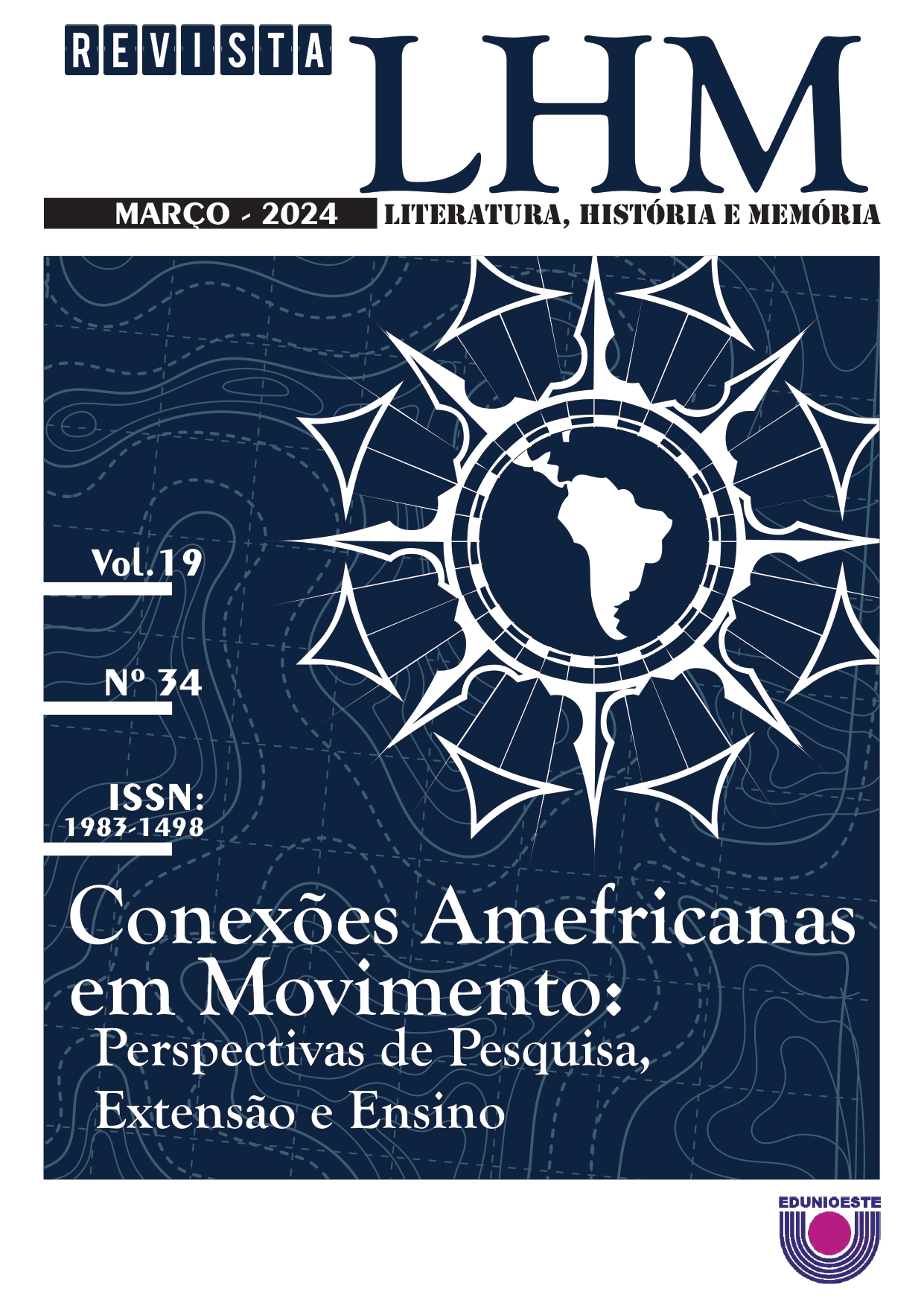The Resignification of The Masters and Slaves
for a Poetic of Exile and Space in the Novel Um Defeito De Cor, by Ana Maria Gonçalves
DOI:
https://doi.org/10.48075/rlhm.v19i34.31478Abstract
Based on a multidisciplinary theory, with the fundamental contribution of Edward Said (2003) and Marc Augé (2008), this work aims at analyzing the experiences of exile of the enslaved female African character, the self-diegetic narrator Kehinde, through her subjective and identitary negotiations with the transited spaces, in the novel Um defeito de cor (2006) by Ana Maria Gonçalves. Methodologically, the investigation does a clipping and considers until the period of her experience in the main house and in the slave quarters, with the purpose to follow the journey of the protagonist between these oppressive places, of which her hybrid look re-elaborates mediations and subversions. As a result, the research understands that the narrative problematizes the expropriation of cultural heritage and subverts stereotypical discourses, because it brings the perspective and voice of the exiled woman, about her resistance and the drama of not belonging under the power of racism, of patriarchy and of slavery, re-elaborating the historical view.
Downloads
Published
How to Cite
Issue
Section
License

This work is licensed under a Creative Commons Attribution-NonCommercial-ShareAlike 4.0 International License.
Aviso de Direito Autoral Creative Commons
Política para Periódicos de Acesso Livre
Autores que publicam nesta revista concordam com os seguintes termos:
1. Autores mantém os direitos autorais e concedem à revista o direito de primeira publicação, com o trabalho simultaneamente licenciado sob a Licença Creative Commons Attribution que permite o compartilhamento do trabalho com reconhecimento da autoria e publicação inicial nesta revista.2. Autores têm autorização para assumir contratos adicionais separadamente, para distribuição não-exclusiva da versão do trabalho publicada nesta revista (ex.: publicar em repositório institucional ou como capítulo de livro), com reconhecimento de autoria e publicação inicial nesta revista.
3. Autores têm permissão e são estimulados a publicar e distribuir seu trabalho online (ex.: em repositórios institucionais ou na sua página pessoal) a qualquer ponto antes ou durante o processo editorial, já que isso pode gerar alterações produtivas, bem como aumentar o impacto e a citação do trabalho publicado (Veja O Efeito do Acesso Livre).
Licença Creative Commons
Esta obra está licenciada com uma Licença Creative Commons Atribuição-NãoComercial-CompartilhaIgual 4.0 Internacional, o que permite compartilhar, copiar, distribuir, exibir, reproduzir, a totalidade ou partes desde que não tenha objetivo comercial e sejam citados os autores e a fonte.


